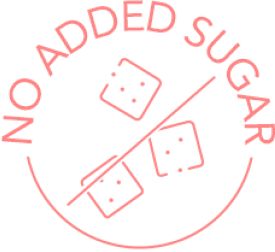The Summer Hair Care Routine for Healthy Hair
Picture this: you're chilling on a beach, sipping on an iced mocktail, and soaking in the summer sun. It's the perfect summer daydream, isn't it? But in reality, you're struggling with excessive hair fall and wondering what's causing it. The truth is summer isn't just about applying SPF and protecting your skin. Your hair, too, needs its fair share of care and attention!
Whether you are on your way to work in the scorching heat or vacating, the sun's harsh UV rays are not kind to your tresses. Summers bring countless hair problems, making your hair look messy and unmanageable. But not anymore! Through this blog, you can take notes on hair care routine and tips to follow to help you maintain stronger hair despite sun exposure.

Common Hair Issues in Summer
- Split ends and Dryness: Heat and hot winds strip away moisture from your hair, causing split ends and dryness. This is because the natural oils in the scalp cannot reach the length and tips of your hair. One of the best ways to tackle this issue is to oil your hair at least once a week and avoid using harsh shampoos.
- Hair Fall: During summer, harmful UV rays, increased heat, and humidity disturb the natural moisture barrier of the hair strands, leading to weakened strands, thinning hair, and aggravated hair loss. You must ensure to keep your hair tied up and covered whenever outdoors.
- Scalp Irritation: Excessive sweat, increased sebum production, dirt, and infrequent hair washing can cause your scalp to feel greasy, itchy, and flaky. If unattended, it also causes dandruff. To avoid this situation, it's advisable to use a gentle shampoo and wash your hair as and when required.
- Frizzy Hair: During summer, increased humidity makes hair absorb too much moisture, breaking the chemical bonds that keep it smooth. This results in rough, tangled, frizzy hair that's hard to manage.
- Chlorine and Saltwater Damage: Chlorinated pools and saltwater strip hair of moisture, causing dryness, brittleness, and breakage. In such a scenario, protective measures and deep conditioning are necessary to repair and prevent hair damage.
Summer Hair Care Rituals
You have learned the primary hair concerns during summer. Now, let's look at some measures you can take to protect your hair.
Step 1: Detangle
Sweat and wind in the hair often result in knots that must be fixed before oiling or showering. Detangling your hair prevents breakage and hair fall. Make sure to use a wide wooden comb instead of a plastic one, as they are naturally sourced, reduce static and are gentle on the scalp.
Step 2: Hair Oiling
Does your hair feel dry and dehydrated? Replenish your scalp and hair with all the essential nutrients and moisture through a good scalp massage once or twice a week, even in summer. Rooting For You is a rosemary essential hair oil with the goodness of other herbs such as Jojoba Oil, Argan Oil, Pumpkin Seeds, Brahmi, Sweet Almond, Vitamin E and more. It helps stimulate hair growth, protects the hair shafts from damage, improves blood circulation, and reduces hair fall.
Step 3: Shampoo
Use a clarifying shampoo once every two weeks. On the other days, you can use a mild shampoo. Whichever shampoo you use, ensure it is sulphate and paraben-free, hydrating and gentle on the scalp.
Step 4: Condition
Always use conditioner only on the length and tips of your hair to prevent frizz and split ends. Leave the conditioner on your hair for about 2-5 minutes for your hair to absorb and seal the moisture.
Step 5: Hair Mask
Once a week, you can apply a DIY hair mask with all the natural ingredients available in your kitchen. For example, you can apply yoghurt mixed with aloe vera gel and leave it on your scalp for one hour. This deep-conditions your hair, has a cooling effect, and makes it look soft and smooth.
Step 6: Scalp Exfoliation
Exfoliating the scalp once a week removes all the extra dirt and build-up. You can apply a scalp exfoliator with 2% salicylic acid 10 minutes before hair wash.
Step 7: Derma Roller
A derma roller improves scalp elasticity and prevents hair fall. You can use a 0.5 mm, 540 titanium needle derma roller once a week.
Takeaway!
Following are a few tips that can further enhance your hair care routine:
- Hydrate and follow a nutrient-rich diet
- Include protein, vitamin C and omega-3 foods in your meals
- Avoid tight hairstyles
- Tie a scarf over your hair to protect it from the sun when outdoors
- Limit the use of heat styling tools






